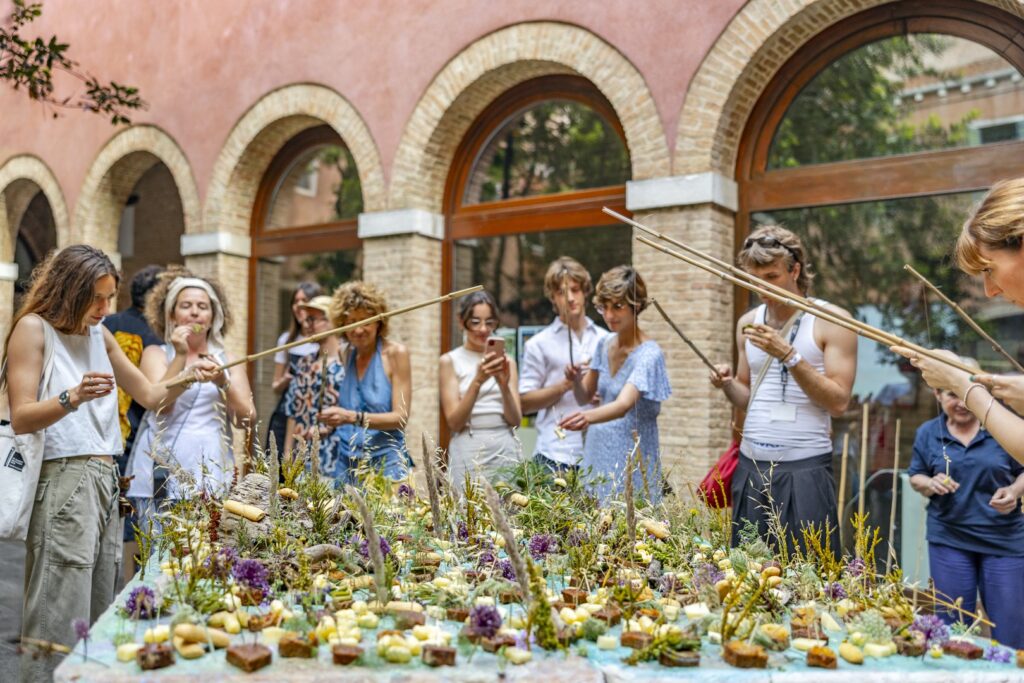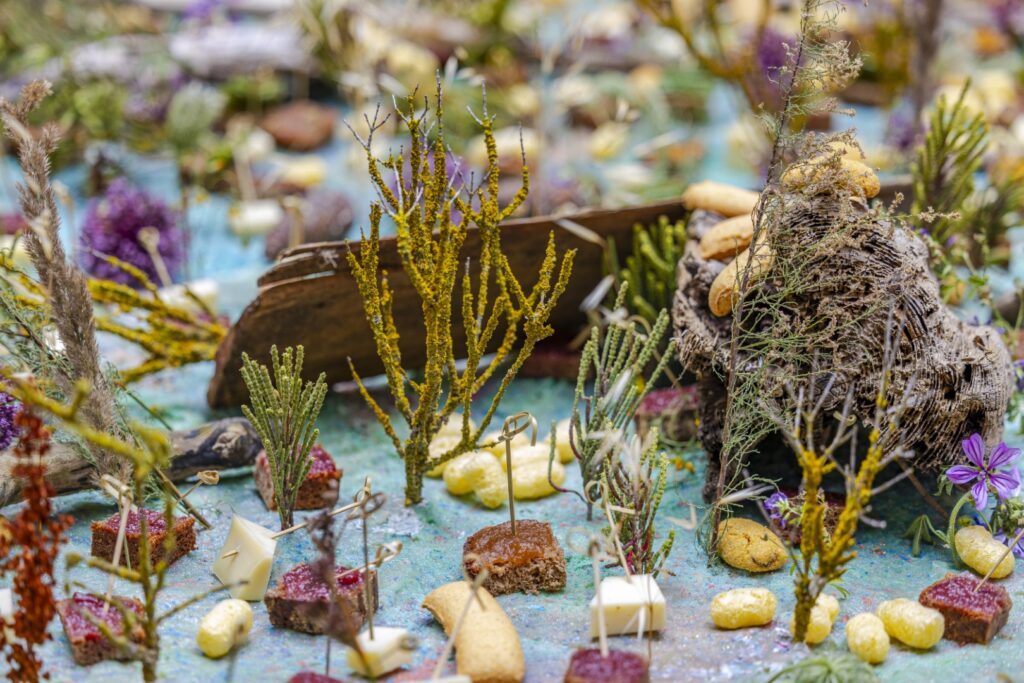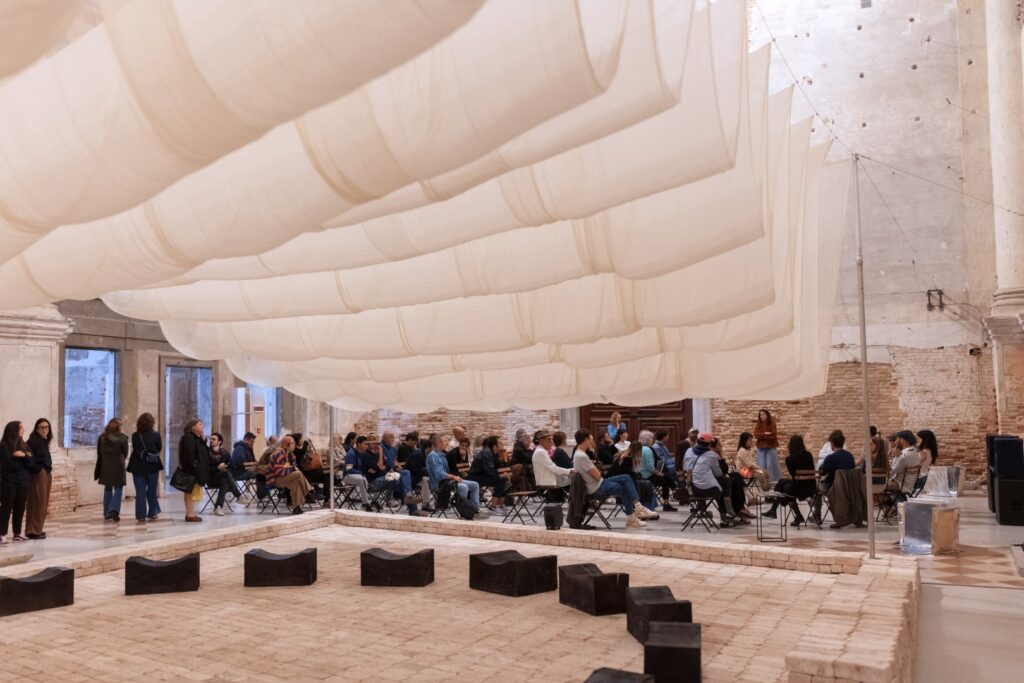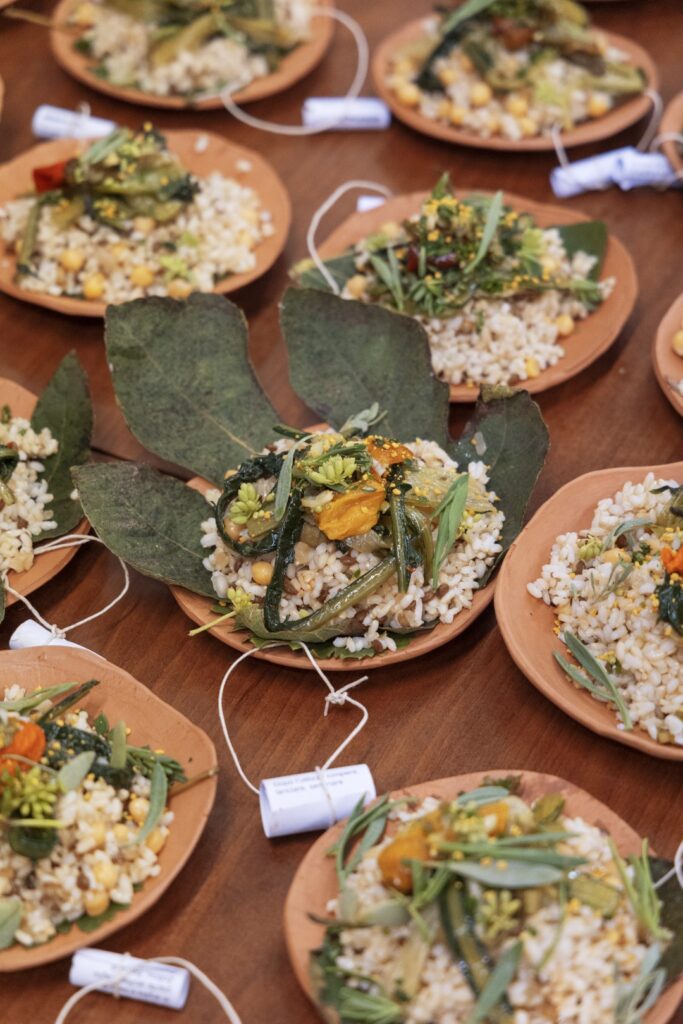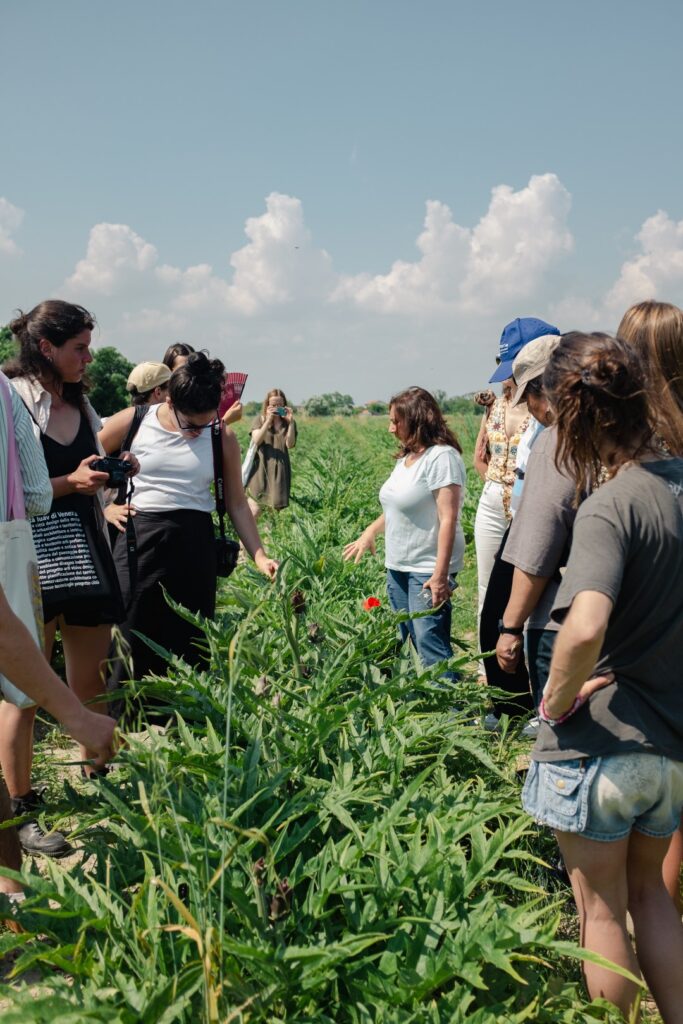Subsoil and ocean exploitation, political and military conflicts over expanding territorial waters, and privatization of common goods cause not only environmental but also cultural damage: devaluing, erasing, and eventually forgetting ancient production techniques. Diverse local knowledges indeed emerge from territorial specificities, but are being eroded everywhere to make way for standardized techniques linked to industrial and large-scale distribution dynamics, causing a dangerous cultural removal: a collective amnesia that leads communities to forget their localized culture and connection to the ecosystem—the so-called shifting baseline syndrome.
These phenomena, evident in the Pacific areas and foregrounded in the Re-Stor(y)ing Oceania exhibition, are the critical basis of the ‘resistance diet’ project that can survive, adapt to, stem, and counteract the changes taking place. The design of a Diet For Resistance is not intended to be limited to a specific geographic area, but rather to be shared with places and people who face similar environmental, economic and social situations: loss of fertile soil and damage to marine ecosystems, pollution of land, air and water, decline of biodiversity, monocultures and overfishing, use of harmful substances and trawling, depopulation of territories and loss of traditional
knowledge, standardization of production and distribution. Venice has been the ground on which to start this research with the intention to create synergies with other geographies and communities.
The project was developed as part of the Convivial Table 2024 programme curated by Barbara Nardacchione in the Ocean Space and with the participation of a group of people selected through an open call who accompanied us on five appointments including installations, lagoon excursions, talks and workshops.
